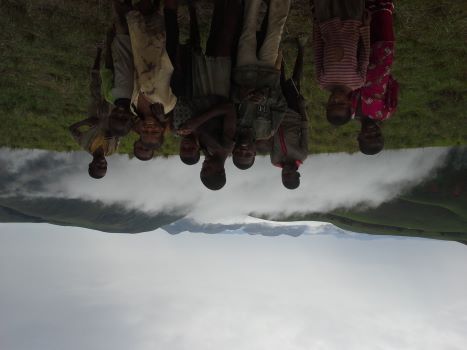Oyinbo Analysis of the Nigerian Election (III)
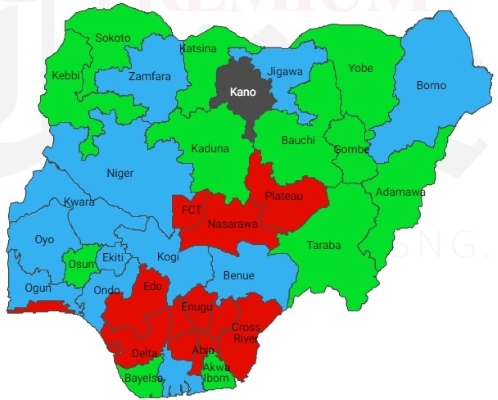
- Blue - APC Tinubu - 8,794,726 (36%)
- Green - PDP Atiku - 6,984,520 (29%)
- Red - LP Obi - 6,101,533 (25%)
- Grey - NNPP Kwankwaso - 1,496,687 (6%)
Last Saturday's Nigerian election results are quite fascinating. For the third election in row, and this is important as APC has won them all, turnout again was down. Valid votes cast dropped from 27.3 to 24.9 million, an almost 9% decline, twice the percentage drop from 2019. This time voting was down across the North, except the North Central which was about the same. Tinubu's home territory of the South West stayed the same and votes declined once again in much of the South South. However, turnout was up in the Igbo South East, decidedly in favor of native son Peter Obi.
A friend from Jonathan's effort had been assuring me Atiku would win. “Buhari is gone. Atiku is popular in the North. Atiku will win much of the North this time.” And he did. Atiku won five of six states in the North East, in 2019 he lost four out of six. In the even more populous North West, the former Vice-President won four out of seven states, in 2019 Buhari had swept all seven.
There were several problems. First, turnout was down across the North, even though Atiku won, it was with less votes. Secondly, the APC didn't just collapse in the North, unlike the PDP did in the South. Tinubu squeezed every vote he could out of each state he lost. Most importantly, in Kano, traditionally the biggest vote in Nigeria, native son and former Kano Governor Rabiu Kwankwaso, who split from the PDP, decisively won the state gaining 60% of the vote. Kano illustrates Mr. Tinubu's electoral shrewdness. While PDP received only hundred-thousand votes out of over 1.6 million cast, almost 300 thousand less than 2019, the APC managed, despite also getting stomped, to pull a half-million votes, a 400 thousand vote margin over the PDP.
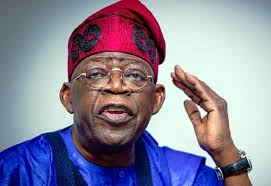
Outside the North East and North West, the rest of the country was all bad news for PDP. In the North Central, PDP was shutout, despite having won 3 states in 2019, including the two biggest―Plateau and Benue. Insurgent southerner Peter Obi won three of the seven states, APC taking the other four.
The South South, home of former President Jonathan and the PDP's Vice-Presidential nominee Ifeanyi Okowa of Delta, was a complete mess. PDP only won two of the six states, after having won all six by substantial margins in 2019.
The big story out of the South South was the defection of the biggest state Rivers and its PDP Governor Nysome Wike, who after losing his quest for the PDP presidential nomination failed to reconcile. Mr. Wike was joined by four other aggrieved PDP governors. PDP lost all five states. Tinubu kept all 20 APC governors with him. In the greatest upset, Wike's Rivers swung to the APC, Obi came in second, PDP receiving less than a hundred-thousand votes.
Which gets to the election's biggest story, the insurgent candidacy of Peter Obi. Several things propelled Obi's substantial vote totals. First, the general unpopularity of the ruling APC, especially with young people. Second, as it became clear, the general unpopularity of the PDP. Third is the great disgust of the Igbo with both. The Igbo could not have sent a louder pox on both your houses electoral statement. Another Yoruba, pro-Tinubu friend, suggested to me the Igbo were ingrates and not appreciative of the APC finally finishing the “second bridge” across the Niger, which had first been proposed in 1958. I replied, “I think that was their thanks.”
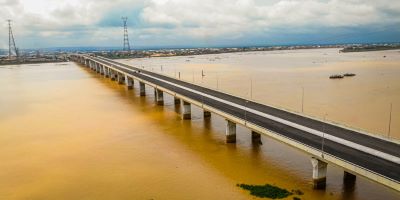
Across Nigeria's short history, ethnicity, region, and religion remain important political identities. The Igbo are an essential story of Nigeria. As stated previously, because of coal, the area became of great interest to the British, later oil was found. As an inclined mercantile people, Igbo are found across Nigeria and as the vote tally made crystal clear, substantial numbers in Lagos.
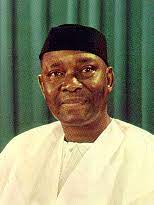
Nigeria's first president, a force for Nigerian independence, was a northern born Igbo, Nnamdi Benjamin Azikiwe. The military coup ending the First Republic was largely led by christian Igbo officers installing General Aguiyi-Ironsi. This coup was immediately countered by another coup led by northern Muslim officers, installing a northern christian, 31 year old Yakubu Gowon as head of state.
A few months later, the Igbo declared independence. In his union saving Lincolnesuqe best, General Gowon stated the Igbo shall not leave and a very brutal civil war was launched. The Biafran War would go on for almost three bloody years. The Igbo suffered massively. At the end of the war, General Gowon declared, “No victors, no vanquished.” The Igbo have since sat uneasily with the federal government first in Lagos and now in Abuja.
In the 2015 and 2019 elections, the Igbo seemed to be slowly seceding from federal elections. They came back in force in 2023 with the Catholic Obi also offering Christians across the nation the ability to cast their displeasure at both parties and their respective Muslim candidates. However, it's essential to point out here there was plenty, in some ways more than ever, cross ethnic, religious, and regional voting this election. It needs a far deeper analysis.
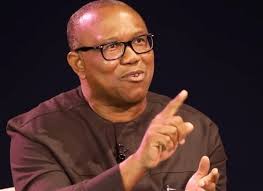
Finally comes the South West, Tinubu's power base, and he used it as such. In 2019, the South West had a couple of the only states where turnout increased, most held. 2023 saw the number of votes cast once more basically hold, neither decreasing or increasing. The PDP managed to barely squeak out a win in one state, Osun, by less than 20,000 votes. The rest of the states were like the rest of the South, the PDP didn't show up.
Lagos is far and away the greatest block of votes in the country and consistently one of the smallest turnout percentages. Some might say Lagos voter suppression is an art form of Mr. Tinubu's. One might even hypothesize this is something Mr. Tinubu first learned in Chicago. One of the Daley Machine's honed tactics was to keep the vote down in African American wards. Those who did vote, voted overwhelmingly for the Machine candidate. At the same time, PDP's organization in Lagos has always been extremely weak.
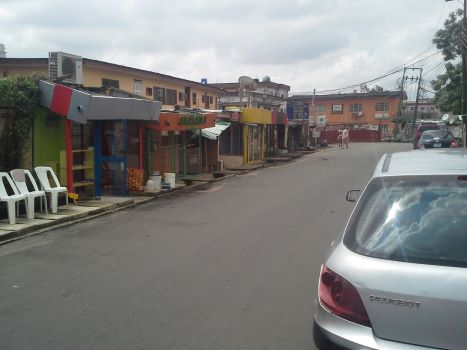
Looking at the results, Igbos in Lagos showed up in such numbers on election day, Obi won Lagos, Tinubu's home state. If you had said to the Lagos Asiwaju before the election he'd have to trade Lagos for Abuja, it's a deal he would have made in a heartbeat. The President-elect's comment upon losing his home state, “Win some, lose some.” In fact, the Lagos, Rivers, and Kano results fairly well tell the whole story of a very amazing election.
The essential number to point out about Lagos is despite Mr. Obi's victory, and with PDP basically non-existent, APC took away a half-million vote margin over the PDP. Adding this number to the five other states of the South West, four won decisively by APC, Tinubu came away from the Yoruba region with a 1.3 million vote margin over PDP. And despite placing second to Kwankwaso in Kano, if you add the 400,000 vote margin APC got over PDP, the six South West states and Kano provided 1.7 million of the 1.8 million votes of APC's national victory margin. That's smart politics.
Preliminary results from Assembly and Senate races show the lack of organizational capacity many before the election thought would hurt Obi did in fact cripple Labour in the two houses. Despite Obi’s 25%, Labour will come away with less than 10% in either the Senate and Assembly, while APC will keep majorities in both. A real forensics on this election would require, I type with a big grin across my face, results by Local Governments and polling units, good luck getting them, though a truly reformed and functioning INEC would make them all immediately available.
As noted earlier, in the short history of the Fifth Republic, a precedent was started by now outgoing President Buhari of the defeated candidate immediately crying rigging. President-elect Tinubu was fond of doing so in 2015 even before a single vote was cast, not so much when results rolled in. Has there been vote rigging in the past in Nigeria? Without a doubt. Was there rigging and suppression this election, undoubtedly. How much? That is a good and important question, but it sure appears the results show as much a legitimate election as a rigged one, with the PDP doing well in the North and collapsing across the South, the Labour Party's Obi doing exceptionally well in Igbo and Christian areas, while Tinubu squeezed every vote possible out of the Yoruba South West.
In 2015, I had the tremendous fortune to watch the vote in a small village in the middle of the Delta, a half-hour launch ride up river from the Bayelsan capital of Yenagoa. Bayelsa was Jonathan's home state. He received 360,000 votes to Buhari's 5,000. In the village, I watched hundreds vote close to unanimously for Jonathan. Could the whole state voted the same, not hard to imagine.
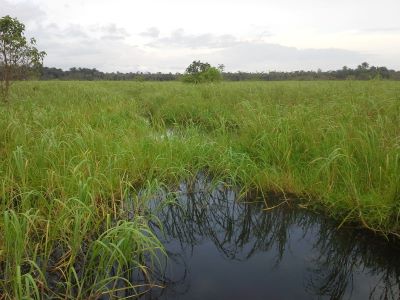
In 2015, I’d hold my hands separated, then bring them slowly together saying, “Here’s Nigeria and here’s America, politically we are coming together.” The Nigerians would laugh, but I was dead serious this time. Best example, in three presidential elections in the last two decades, Americans on both sides have loudly shouted the results were rigged, proof largely or completely non-existent.
In this regard, the Financial Times of London has an unhelpful editorial titled, "Nigeria's badly flawed election." Reading Western press accounts, most especially anything out of the old seat of empire, about what was happening around me in Nigeria was always at best trying. Most of the time it was so bad, it wasn’t even wrong.
The FT claims the election was “badly mismanaged at best.” Absolutely, that is best. It's simply incredible in a nation of Nigeria's population, size, and infrastructure, that one central agency, INEC, conducts a national election in one day. “Badly mismanaged?” It's a testament to Nigeria it's accomplished at all.
A few nights ago watching Chicago election results, I was chatting with a couple Nigerians. I pointed to them that within an hour of the polls closing over 80% of the results were in. No one, and this was even Chicago, claimed rigging. The incumbent Mayor was defeated. Most relevant for Nigeria, the election was run by the city, not the state or federal governments. Nigeria desperately needs Atiku's restructuring.
The FT's fab reporting also claims rigging might be seen with, “Obi’s ever-so narrow victory in Lagos state, where crowds had greeted him like a rock star.” Here's an election rule I learned my first campaign, big crowds are no guarantee of big votes. But, Ay Caramba! Obi's Labour Party won Lagos gaining over a half-million votes, the entire slate of alternative parties in 2019 didn't get 25,000 votes. If you want to look at the Lagos vote for problems look at the complete disappearance of the PDP, maybe they never existed?
The FT goes on,
“More worrying still was voter turnout, which was pitifully low at 27 per cent. If official results are right, two-thirds of the 87mn people who lined up for hours to collect their voter registration cards failed to cast their ballot....Total turnout of 25mn votes in a country of 220mn people is unacceptably low.”
The lack of voter participation in Nigeria is definitely a problem. However, the FT didn’t raise the issue when vote totals dropped 29% in 2015, in fact just the opposite, they jumped all over Buhari's election as the greatest act of African democracy. I've already addressed the problematic issue of Nigeria's actual population. As far as INEC's voter rolls, they're as problematic as other Nigerian numbers. There isn't one Nigerian who believes INEC's 94 million registered voters number, while 87 million PVC cards cumulatively collected over three elections doesn't say much either. In fact, whenever I'd point to low turnout rates based on these numbers the Nigerian response was always, “It's more than that, those registration numbers are meaningless.”
The FT then adds, all true,
“The system to upload results from 177,000 polling stations stuttered, causing legitimate concerns of vote tampering during long delays. Violence was troubling. Party goons invaded many polling stations in what appeared to be blatant acts of intimidation.”
The FT editorial ends, “It is plausible courts could conclude that ― despite some obvious irregularities ― the overall result reflected the will of the people.” Adding, “Tinubu’s tally of 8.8mn gives him the weakest of mandates.” The final point being the most important of the piece, while the ruling party may well have won, almost two-thirds of those voting, voted against Tinubu.
It's up to the Nigerians to decide and accept their election's validity. The numbers are truly fascinating and at best a testament to the democratic legacies of President Goodluck Ebele Jonathan and most ironically the incompetent old general and former dictator who followed him.
I certainly wouldn't bet on it, but it'd be nice to see the Lagos Asiwaju grow in Abuja and not worry foremost about the money to be grabbed, once again Nigeria and America coming together. As Nigeria is overly fond of adopting American and European political trends and fads, a good one at this moment might be to adopt the current en vogue European trend of a government of national unity. Peter Obi can be given the task of conducting a census and Atiku head a representative restructuring assembly offering plans to establish functioning local government across the nation shaped by Nigeria’s landscapes, traditions, and needs.
Along the same lines, Nigeria should quit exporting oil and gas, burn it themselves and trade some with their neighbors. Help out the Congolese, themselves, and the rest of world by trading some oil and gas for Congo’s rare earth metals and start manufacturing Nigerian chips, solar panels, and other materials. Lord knows the whole world needs a much greater diversity of thinking in how these technologies are developed and implemented.
Godspeed Nigeria.
